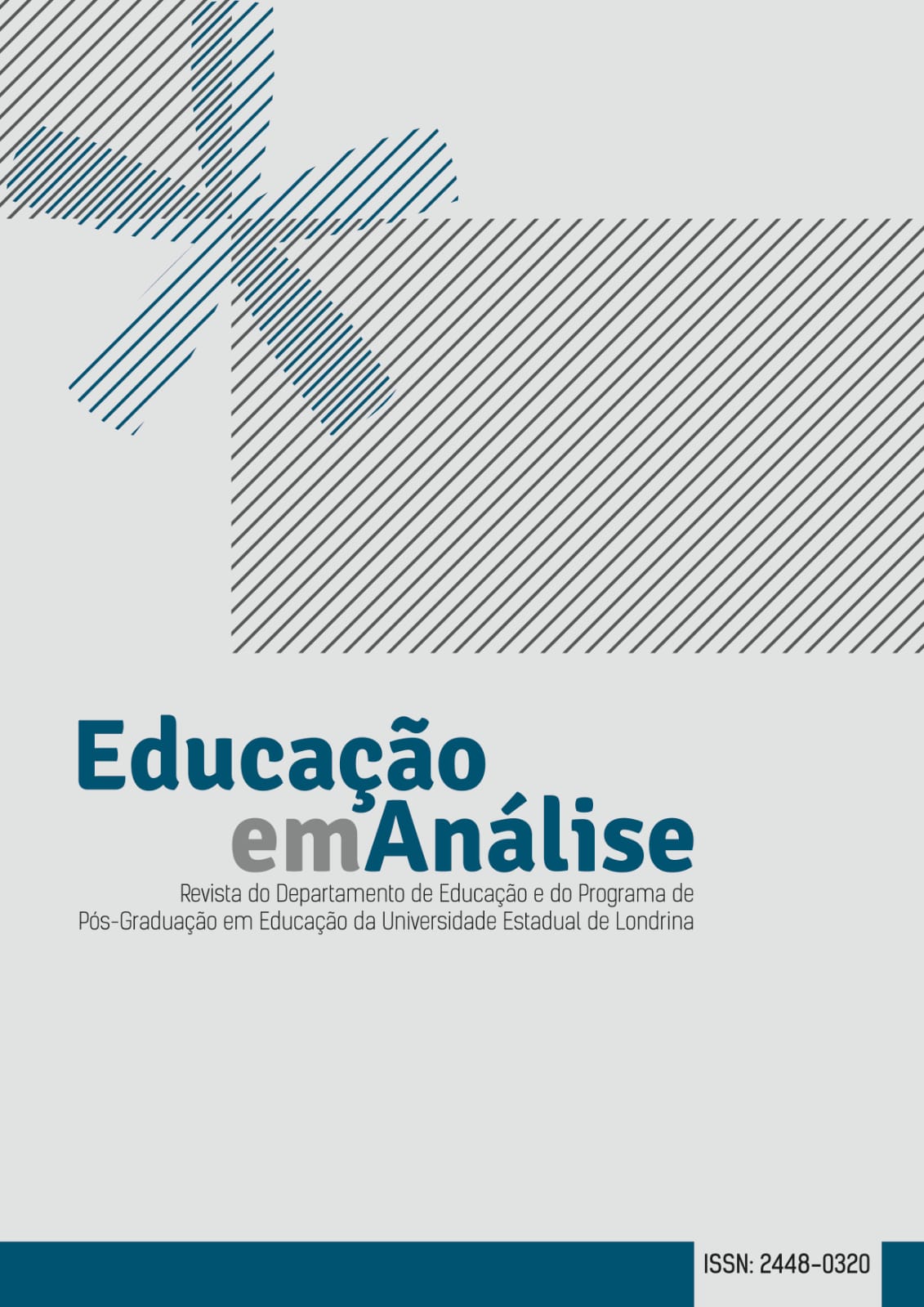Kamii and physical knowledge – the importance of action for th discoveries of the world
DOI:
https://doi.org/10.5433/1984-7939.2022v7n2p386Keywords:
physical knowledge, constructivism, child educationAbstract
The construction of physical knowledge is a relevant factor when we discuss the possibilities of forming critically autonomous subjects who, through investigative thinking, seek to solve various situations. Piaget (1896-1980), researching human development, attributed its construction to the relationship established between the subject and the objects of knowledge, and highlighted physical, logical-mathematical and social knowledge. This study focuses on aspects related to physical knowledge and its importance for young children's discoveries of the world from the perspective of constructivist scholar Constance Kamii. The role of the teacher in this process is also highlighted, since the situations he proposes and their interventions can lead to imbalances necessary for child development, raising the processes of assimilation, accommodation and balance, responsible for the alterations and/or constructions of mental structures. It is hoped that such reflections can contribute to the understanding of the constructivist approach, and thus support the teacher's conception of the need to provide students with meaningful experiences, in which they can act, observe and reflect, thus developing the investigative thinking, which endows the child of the curiosity necessary for him to continue researching and learning.
Downloads
References
BECKER, Fernando. Educação e construção do conhecimento. 2 ed. Porto Alegre: Penso, 2012.
DELVAL, Juan. La representación infantil del mundo social. In: TURIEL, E.,ENESCO, I., LINANZA, J. El mundo social en la mente del niño. Madrid: Alianza, 1989.
DELVAL, Juan. O Desenvolvimento Psicológico Humano. Tradução Ricardo A. Rosenbusch. 1 ed. São Paulo: Vozes, 2013.
KAMII, Constance; DEVRIES, Rheta. O Conhecimento Físico na Educação Pré-Escolar: Implicações da teoria de Piaget. Porto Alegre: Artes Médicas, 1988.
KAMII, Constance. A criança e o número. Campinas: Papirus pré-escolar; Porto Alegre, Artes Médicas, 1991.
KAMII, Constance; DEVRIES, Rheta. O conhecimento físico na educação pré-escolar: implicações da teoria de Piaget. Tradução Maria Cristina Goulart. Porto Alegre: Artmed, 1991.
KAMII, C. A criança e o número: implicações educacionais da teoria de Piaget para a atuação junto a escolares de 4 a 6 anos. Tradução Reina A. de Assis. 4. ed. Campinas: Papirus, 1985.
MANTOVANI DE ASSIS, Orly Zucatto. Desenvolvimento intelectual da criança. In: ASSIS, Múcio Camargo de; ASSIS, MANTOVANI DE ASSIS, Orly Zucatto (org.). Proepre: fundamentos teóricos da educação infantil. 7. ed. Campinas: Book Editora, 2013.
MANTOVANI DE ASSIS, Orly Zucatto. Conhecimento físico , conhecimento lógico-matemático e conhecimento social.In: ASSIS, Múcio Camargo de; ASSIS, MANTOVANI DE ASSIS, Orly Zucatto (org.). Proepre: fundamentos teóricos da educação infantil. 7. ed. Campinas: Book Editora, 2013.
PIAGET, Jean. Psicologia e Pedagogia. Trad. Dirceu A. Lindoso; Rosa M.R. da Silva. Rio de Janeiro: Forense Universitária, 1970.
PIAGET, Jean. Abstração reflexionante: relações lógico-aritméticas e ordem das relações espaciais. Porto Alegre: Artes Médicas, 1995.
PIAGET, Jean. Aprendizagem e conhecimento. In: PIAGET, Jean; GRÉCO, P. Aprendizagem e conhecimento. Rio de Janeiro: Freitas Bastos, 1974.
PIAGET, Jean. Development and learning. Journal of Research in Science Teaching, New York, v. 2, n. 3, p. 176-186, 1964. DOI: https://doi.org/10.1002/tea.3660020306
PIAGET, Jean. Psicologia da inteligência. Rio de Janeiro: Zahar, 1983.
PIAGET, Jean; GARCIA, R. Psicogênese e história das ciências. Lisboa: Publicações Dom Quixote, 1987. (Coleção Ciência Nova, n. 6).
PIAGET, Jean; INHELDER, B. A psicologia da criança. Rio de Janeiro: Difel, 1978.
SARAVALI, Eliane Giachetto; GUIMARÃES, Taislene. Ambientes educativos e conhecimento social: um estudo sobre as representações de escola. Educação em Revista, Belo Horizonte, 2010, v. 26, n. 1, p. 157-184. Disponível em: https://doi.org/10.1590/S0102-46982010000100008. Acesso em: 30 jun 2021. DOI: https://doi.org/10.1590/S0102-46982010000100008
SARAVALI, Eliane Giacheto; SOUZA, Emulyn Fernanda Pereira. As relações entre o raciocínio lógico-matemático e a construção do conhecimento social: um estudo evolutivo. Revista Cadernos de Educação, Pelotas, 2016, n. 53, p. 101-122. Disponível em: https://periodicos.ufpel.edu.br/ojs2/index.php/caduc/issue/view/547. Acesso em: 26 jun 2021.
Downloads
Published
How to Cite
Issue
Section
License
Copyright (c) 2023 Rosângela Cristina Diegoli , Edneia Felix de Matos, Ivana Aparecida de Araújo Rocha, Marcela Cristina de Moraes

This work is licensed under a Creative Commons Attribution-NonCommercial 4.0 International License.
The journal reserves the right to make normative, orthographic and grammatical changes in the originals, with the aim of maintaining the cultured standard of the language and the credibility of the vehicle. It will, however, respect the authors' writing style. Alterations, corrections, or suggestions of a conceptual nature will be sent to the authors when necessary. In these cases, the articles, after being adequate, should be submitted to a new appreciation.









